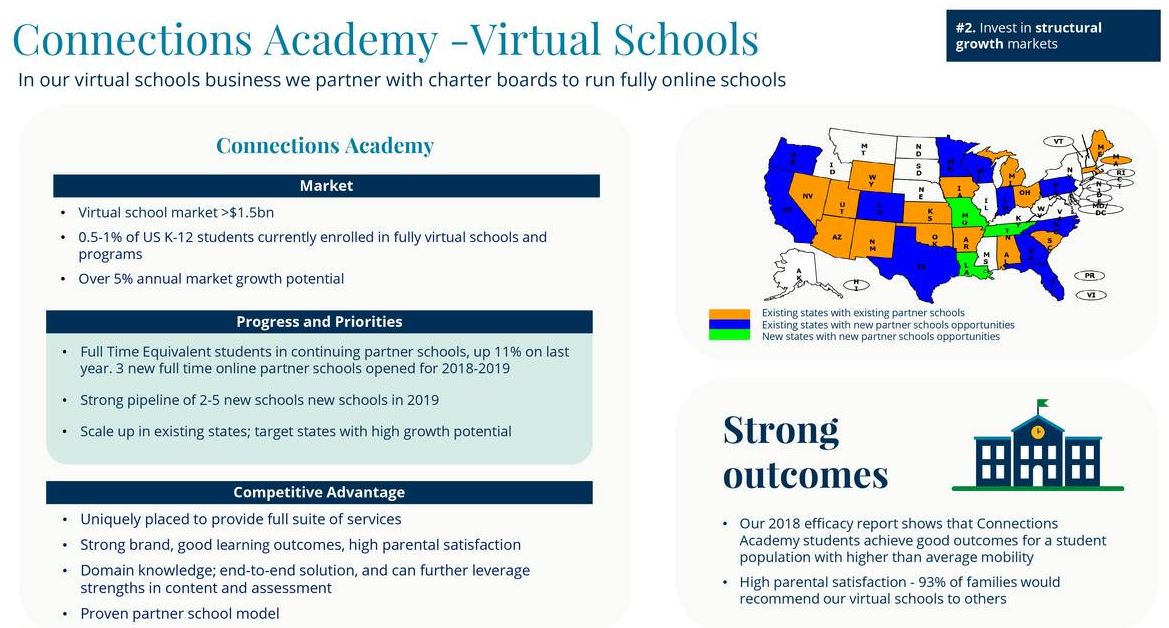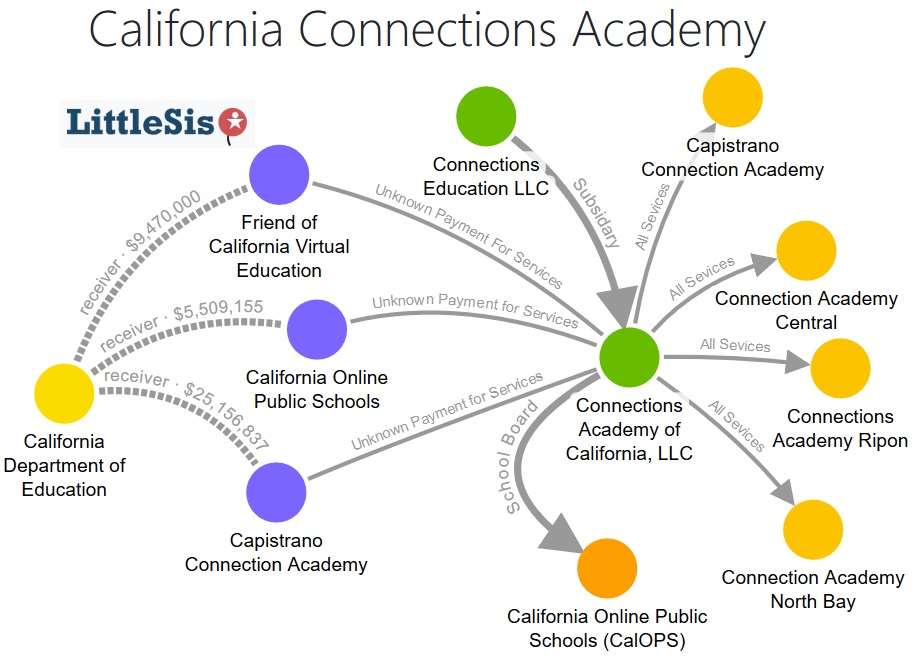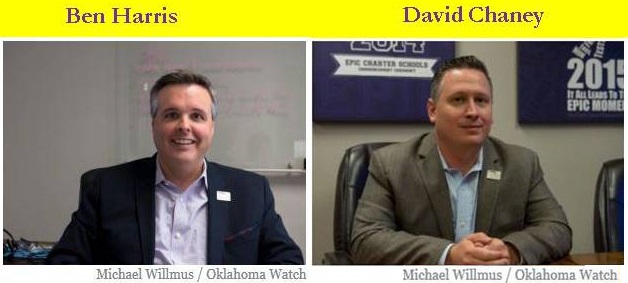By Thomas Ultican 12/8/2020
The last Democrat and first woman to serve as Governor of North Carolina, Bev Perdue, has become one of the nation’s leading advocates for digital learning. She presents herself as a simple country girl from a poor family, but doesn’t mention that her coalminer father became a rich mine owner by the time she was in college. She is known as a powerful political and financial operative with connections that go all the way to the incoming Biden administration.
Creating a New Career
Governor Perdue has a background in education. After obtaining a bachelor’s degree in history, she taught kindergarten in 1970-71, ninth grade 1971-73 and high school 1973-74. She then returned to college where in 1976 she earned a Doctorate in Education Administration. Her thesis was focused on education gerontology.
Following earning the education doctorate, she worked in long term care and geriatric services. She ran for the North Carolina House of Representatives in 1986 and won. Four years later, she won a state senate seat; holding it for a decade before making successful runs for Lieutenant Governor in 2000 and again in 2004. This all positioned her to become North Carolina’s first female governor in 2008.
For Perdue, the wheels flew off the campaign bus in 2012. She was facing tanking polling numbers when members of her 2008 campaign pled guilty to finance violations. Greensboro businessman Peter Reichard, the finance director, pled to a felony and lawyer Julia Leigh “Juleigh” Sitton, a fundraiser for the campaign, pled to a misdemeanor in order to avoid a felony charge. Perdue soon announced she would not be a candidate for Governor in 2013.
The June following her exit from the Governor’s mansion, the Newsobserver.com reported, “Former Democratic Gov. Bev Perdue has recently finished her teaching fellowship at Harvard’s John F. Kennedy School of Government, and plans to launch an education consulting business from her home in Chapel Hill.” The next month, the Bill and Melinda Gates Foundation gave Perdue a $250,669 grant to “develop a business and operation plan for the Digital Learning Institute (digiLEARN).”
That September digiLEARN received notice from the IRS of their successful application identifying them as a charitable organization. To do the heavy lifting at digiLEARN, Purdue brought in her advisor from the governor’s office on e-learning and innovation, Myra Best. Prior to joining Perdue in Raleigh, Best served as Director of the Business Education Technology Alliance (BETA) which established North Carolina’s first statewide Virtual Public School. BETA was a committee of 27 business, political and education leaders established by the North Carolina General Assembly in 2002. The chair of the committee was Lieutenant Governor Bev Perdue.
DigiLEARN’s about web page states,
“Digital Learning Institute is a non-profit organization dedicated to accelerating digital learning for all ages with a goal of increasing personal learning options for students and expanding instructional opportunities for teachers and instructors. In addition, DigiLEARN will focus on cultivating an innovative economy for education technology start-ups and entrepreneurs.
“DigiLEARN was founded and is chaired by former North Carolina Governor Bev Perdue, with former Wyoming Governor Jim Geringer serving as vice chair.”
In 1997, the vice chair, Jim Geringer, was one of the governors who established the non-profit Western Governors University in Salt Lake City. It was an early adopter of cyber and competency based education. In a lengthy interview for the Wyoming State archives, Geringer speaks glowingly about the school and its methods.
The membership of the first digiLEARN board of governors made it clear that it was politically connected and aligned with the goals of the edtech industry. In addition to Geringer and Perdue former West Virginia Governor Bob Wise became a founding Director on the board.
In 2010, Jeb Bush and Bob Wise launched the Digital Learning Council which promoted cyber schooling and “personalized learning.” In 2015, North Carolina State University honored Wise at the Friday Institute for Educational Innovation’s Friday Medal presentation. The institute notes, “The Friday Medal is awarded annually in honor of William C. Friday to recognize significant, distinguished and enduring contributions to education and beyond through advocating innovation, advancing education and imparting inspiration.”
Besides the three ex-governors, two North Carolina State Representatives – Craig Horn and Joe Tolson – were on the original board. Also on the board was one of edtech industries most widely published advocates, Tom Vander Ark. He became a national name in 1999 when named the Executive Director of the Gates Foundation in charge of education initiatives. In 2001 his notoriety grew when testifying before congress making the case for the now failed Gates small schools initiative. Teacher activist Anthony Cody wrote questioning Vander Ark’s 2016 push for new testing in a Washington Post piece,
“The growing ‘opt out’ movement poses a huge threat to the standardized testing ‘measure to manage’ paradigm.
“So what is to be done?
“Reinvent the tests once again, using technology. And who better for the job than Tom Vander Ark, formerly of the Gates Foundation, and now associated with a long list of education technology companies. The latest package of solutions is being called ‘competency-based learning,’ and it was featured prominently in the Department of Education’s latest ‘Testing Action Plan.”‘
Michael Lavine is also on the board. For almost 11 years he was Executive Director of the Joan Ganz Cooney Center where according to his LinkedIn page, he “Founded research and development institute (a new division for the company) devoted to accelerating young children’s learning through the integration of proven and promising educational technologies.” For seven years, he served as an Advisory Board Member at Teach For America (TFA).

DigiLEARN focuses its activities on developing a network of support for competency based education and digital learning. Of particular note are their connections with The Friday Institute of Education Innovation and The Innovation Project both headquartered on the campus at North Carolina State University. They spend most of their billionaire provided largesse on Digital Scholars, a program developed to help teachers see the value in digital learning and to successfully institute it.
Liz Bell of EDNC (Education North Carolina) reported on the 2017 plan for establishing Digital Scholars:
“The program is operating on a $1.5 million budget, $900,000 of which will be for the 40 total Scholars training, travel, and experiences. The other $600,000 will be used to hire a full-time Digital Scholar, and for contracts, publications, and other expenses.”
“We have realized now that if you can put teachers really skilled in digital learning in every school in a state, or in every school in a district, then you can build to scale this thing we call personalized learning,” she [Perdue] said.”
A libertarian conservative named A. J. Dillon observed,
“This continued push in Digital Learning comes despite a study from January 2016 that says digital devices are a major distraction to students and achievement levels were suffering.
“The study was done by Bernard McCoy University of Nebraska Lincoln which was published in the Journal of Media Education and involved college students.
“A variety of recent research suggests that digital device access is lower academic progress, creating developmental delays for young children and has become a real distraction in the classroom. Digital learning is also proving to be very, very expensive.”
Dillon also urged her followers to read, “Screens In Schools Are a $60 Billion Hoax.”
Director Tom Vander Ark just published a new piece about Governor Geringer’s Western Governor’s University (WGU). In it he shares,
“WGU put together a skills architecture team alongside national competency networks. They then used EMSI, a common way to describe skills, to tag them to a competency and execute dynamic audits of performance.”
He quotes Marni Baker Stein, Provost and Chief Academic Officer at WGU,
‘“Over 90 institutions who are actively involved in this work. Ourselves, SNHU, Georgia State System, ACE, Wal Mart, Amazon, Udacity, US Chamber, more… Concentric Sky.’ (sic)
Vander Ark concludes,
“These developments will lead to a skills library that everyone can use and will encourage diversity in employment and educational institutions. Tagging all things to a skill makes them universally valuable — something that is particularly important with Human+ degrees.”
Behavioral badging in China (gamifying good citizenship) is quite similar to the dystopian future being offered here. Edtech enabled micro credentialing includes behavior modification using badging as a way to move schooling away from a rounded liberal arts program to a marketable skills program. Students complete small discrete skills at a screen and are rewarded with badges as proof of meeting the standard. Wall Street leaders in the online learning and edtech industries are making major investments in this scheme which holds the potential for destroying community public schools, generating large profits and lowering taxes on the wealthy. It has also proven to be bad pedagogy.
EDNC reported that this October, Lawmakers at the North Carolina Joint Legislative Education Oversight Committee heard a proposal to make micro-credentialing a statewide system of professional development for teachers.
“Former Democratic Gov. Bev Perdue, head of digiLEARN, a nonprofit focused on ‘accelerating digital learning,’ is spearheading the development of a micro-credential program along with partners such as the state Department of Public Instruction, RTI International, and New America.
“Rep. Craig Horn, R-Union, a chair of the committee, said that micro-credentials can help people better understand what kinds of teachers are in a classroom.” (Representative Craig Horn is a digiLEARN founding board member.)
Perdue, Vander Ark, Horn and everyone else at digiLEARN must be thrilled that Catherine Truitt is the incoming Superintendent of Public Instruction for North Carolina. Chancellor Truitt of the North Carolina branch of WGU is leaving the competency based cyber school for her new position.
Billionaires like Bill Gates, Michael Bloomberg and Laurene Jobs Powell have spent lavishly to create an education publishing group to get out their message of school choice and edtech. Both Perdue and Vander Ark are regular contributors to The 74 Million and Perdue is featured at The Education Post. One of her early pieces for Education Post was “A Nation At Risk 2.0.” In it Perdue echoed the calamity rhetoric of 1983’s “A Nation At Risk” declaring, “Right now, alarm bells should be clanging all over America louder than they were for President Reagan and business leaders more than 30 years ago.” She was decrying the slow implementation of edtech in schools.
Perdue has added a new position to her resume, Managing Partner for Education, at the Ridge-Lane Limited Partners. The former Pennsylvania Governor and first Secretary of Homeland Security, Tom Ridge, has partnered with financier R. Brad Lane to create the company. Their about page says it is “a strategic advisory and venture development firm … focused on root-cause solutions to grand challenges in Education, Sustainability, and Information Technology.
Along with Perdue, former West Virginia Governor Bob Wise is on the Ridge-Lane board. Also on the board is former New Schools Venture Fund CEO and Obama’s Under Secretary of Education Ted Mitchell. He has strong ties to the investor community and the privatization movement. Two TFA alumni Hana Skandara and John White are on the board as is Chris Cerf.
With this lineup of education leaders there is little doubt that Ridge-Lane will be promoting both bad edtech and segregation engendering school choice.
Infecting the Biden Administration with Edtech Dogma
Prompted by an article I had written about North Carolina being ravaged with edtech spending, a profoundly shaken person contacted me to share their experience on Biden’s campaign Education Policy Committee. As the new administration prepares to take charge, many groups are meeting to develop an agenda to move America forward.
In the Education Policy Committee, there was a tech sub-committee chaired by Bev Perdue. Reportedly the sub-committee had a large North Carolina contingent including Myra Best. The twenty member sub-committee was dominated by edtech supporters. Many members were people with backgrounds like former Amazon web-services director.
The committee’s attitude toward student privacy was unacceptable especially their positions on sharing data. My source described the sub-committee as the proverbial “foxes in the hen house.”
Edtech can be a wonderful thing for students and educators, but if the point is to make large profits off data and replace teachers with digital screens, edtech becomes a great evil. Unfortunately, Bev Perdue and digiLEARN are promoting the evil brand of edtech. Let’s hope the incoming administration can successfully filter out this tainted input.













